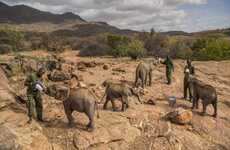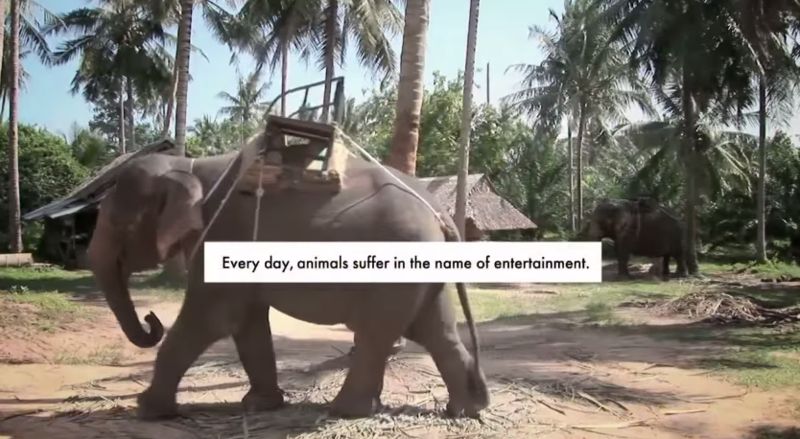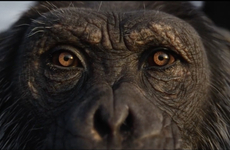
'Authentic Elephant Rides' Reveals the Truth Behind Elephant Rides
Laura McQuarrie — October 17, 2014 — Social Good
References: beforetheybook.worldanimalprotection.org
World Animal Protection's 'Authentic Elephant Rides' ad reveals what goes on behind the scenes of the elephant tourism industry in many Asian countries. Prior to booking an elephant ride, campaign encourages people to become aware of the abuse and breaking process that elephants go through in order to give rides to tourists.
The ad is set up to spoof elephant camps and a cheery tour guide exposes how the animals are often starved, chained, deprived of sleep, speared and hooked in order to train them for tourist rides. Hopefully, the World Animal Protection campaign will be successful at getting people to open their eyes and think twice about how these strong, kind and intelligent creatures are mistreated for human enjoyment, as well as how paying for elephant rides continues the cycle of abuse.
The ad is set up to spoof elephant camps and a cheery tour guide exposes how the animals are often starved, chained, deprived of sleep, speared and hooked in order to train them for tourist rides. Hopefully, the World Animal Protection campaign will be successful at getting people to open their eyes and think twice about how these strong, kind and intelligent creatures are mistreated for human enjoyment, as well as how paying for elephant rides continues the cycle of abuse.
Trend Themes
1. Ethical Tourism - Highlighting animal abuse in the tourism industry reveals an opportunity for ethical tourism that promotes animal welfare.
2. Virtual Tourism - As people become more aware of the abuse faced by animals in the tourism industry, virtual tourism can emerge as an innovative alternative that doesn't harm animals.
3. Animal Welfare Activism - The World Animal Protection campaign is an example of how animal welfare activism can disrupt the tourism industry and influence consumer behaviour towards more responsible and humane practices.
Industry Implications
1. Tourism - The elephant tourism industry must evolve its practices and move towards ethical tourism in order to address animal welfare concerns and meet evolving consumer preferences.
2. Virtual Reality - As consumers seek out alternatives to animal tourism, the virtual reality industry has an opportunity to develop innovative and engaging experiences that allow people to appreciate animals without causing harm.
3. Animal Welfare Advocacy - Animal welfare advocacy groups have an opportunity to educate consumers and raise awareness about animal abuse in various industries in order to drive change and promote humane practices.
4.3
Score
Popularity
Activity
Freshness























